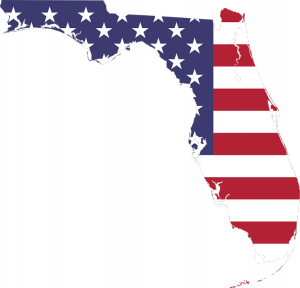The Business Community in Kentucky Will be benefiting from improved Workers Compensation Rates in 2019
In Kentucky, the business community will pay significantly less for Workers Compensation Premium next year. The rates will actually be 10.8 percent less in 2019. The decline in premium will apply predominantly to the industries of manufacturing, office, clerical, and contracting. These means some industries will see less of a decrease and some industries may see no decline at all. No matter what industry a business operates in, the business community overall will benefit from better Kentucky Workers Compensation Rates 2019.

Why are Kentucky Workers Compensation Rates Declining in 2019
There are a number of reasons why Kentucky Workers Compensation Rates in 2019 will be declining by more than 10 percent. Some reasons contributing to the decline in premium throughout Kentucky is stability in written premium, lower combined ratios throughout the state, and lower loss-time claim frequency. This means the number of businesses buying workers comp coverage is the same or increasing compared to the previous years. The experience modification ratings of the businesses operating in the state are lower. This low rating comes from businesses operating safely and filing less claims. The lower loss-time claim frequency means workers who have been injured have been able to get back on the job fairly quickly, lowering the amount the workers compensation system has had to pay out for claims.
Additionally, the strongest factor contributing to declining workers comp premium rates is House Bill 2. According to the Department of Insurance Commissioner Nancy Atkin, “much of the decrease in costs to the passage of House Bill 2, which made significant reforms to the workers’ compensation system for the first time in over twenty years”. Many of the statutes in the previous workers compensation system were ruled unconstitutional by the state supreme court. These rulings brought about instability throughout the workers compensation market in the state. House Bill 2 stabilized that market.

Kentucky Workers Compensation System Over Haul
House Bill 2 passed in 2018. This was the first attempt to make significant changes to the workers compensation system in the state of Kentucky in more than 20 years. Jeffrey Junkas, assistant vice president, state government relations for PCI said, “House Bill 2 is designed to help contain underlying costs and improve the state’s workers compensation system. HB 2 makes changes impacting medical expenses and benefits. It also takes steps to address the opioid crisis with an evidence-based pharmaceutical formulary and medical treatment guidelines to ensure timely delivery of appropriate medical care to injured workers.”
In addition, the bill increases the maximum compensation rates for employee temporary total disability, permanent total disability, and permanent partial disability benefits. It improves access to vocational rehabilitation services, and makes improvements in the dispute resolution system. These changes will improve efficiency of the system and provide better services to both businesses and injured workers.
One big difference to the system that was brought on during the overhaul in 2018 was a 15-year benefit cap from the date of injury. This cap would apply only to workers who meet certain conditions and are filing claims for permanent, partial disability because of on-the-job injuries. Many of these workers eventually return to the labor force and do not collect the full 15 years worth of benefits. Currently, they are entitled to medical benefits for the duration of the disability. This could be for the rest of their life in some situations. House Bill 2 does allow injured workers who meet these conditions to file for recertification. If they are approved the new system would allow them to continue receiving medical benefits.

What Can Kentucky Business Owners do to Maximize Savings?
Depending upon the class code and the experience modification rating of an individual business the rating may be larger or smaller than the average decrease. There are a number of things a business can do to control what they pay for workers compensation insurance premium.
Safety Programs
Safety Programs are the single most effective way to limit what a business pays for commercial insurance. Separate from what it does for the businesses bottom-line, it is simply the right thing to do. Taking care of the health and well-being of your employees and customers should be at the heart of any businesses mission. Taking care of your staff will allow them to be more productive while also lowering the frequency and severity of insurance claims made by the business.
Light Duty Work
The best way to get employees back on the job and back to full-time work is to have light duty work prepared for those employees. Humans are creatures of habit and our work day routine is a big part of our most employees routine. The longer an injured worker stays off the job, the longer they have to create new habits away from the job. Having a plan for many types of light duty work in order to get injured workers back on the job and back in to their workday routine.
Classify Properly
In order to maximize savings when it comes to all forms of commercial insurance, it is important to first make sure all employees are classified properly. Many businesses have employees who partake in drastically different areas of the business. Some of those businesses have employees who work in office or clerical work, other employees who are salesman who spend a lot of time out at third party locations, and still other employees who work doing physical labor. All of these employees need to be placed in the proper classification code and their payroll needs to be strictly measured.
Shop Around Your Policy
In order to maximize savings, it is important to shop around your policy periodically. It is not a good idea to switch carriers each year based upon a small decline in premium. Long term relationships still do mean something when you have to file a claim. At the same time, it is important to make sure your carrier is competitive with the market.
Use an Independent Agent
Shopping around your insurance policy can be a time consuming endeavor. If your time is valuable, partnering with an independent insurance agent can be a way to get multiple quotes from multiple carriers all in one place. Partnering with an independent agent can allow you to get back to running your business while the insurance agent shops your policy so you don’t have to. This can maximize savings while getting your business more comprehensive coverage.

